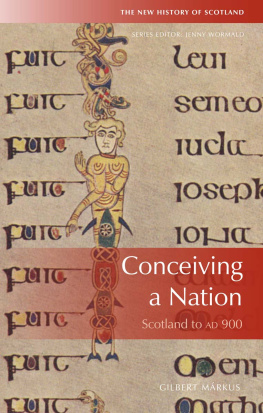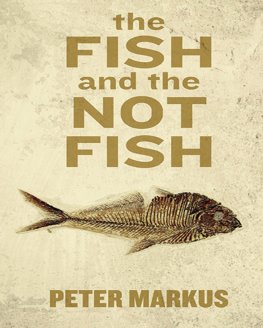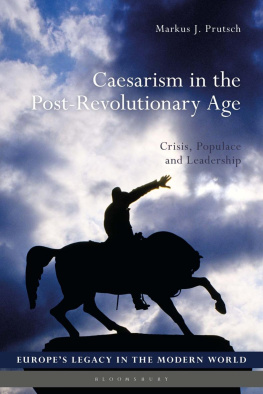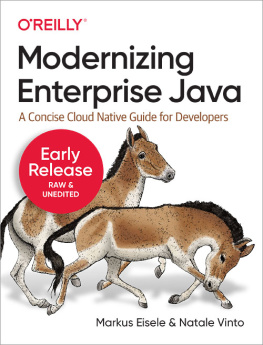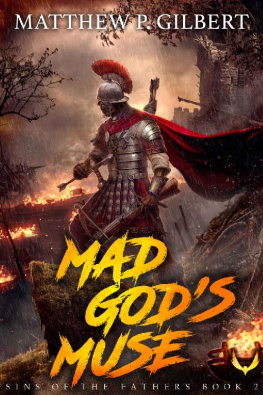Gilbert Márkus - Conceiving a Nation
Here you can read online Gilbert Márkus - Conceiving a Nation full text of the book (entire story) in english for free. Download pdf and epub, get meaning, cover and reviews about this ebook. publisher: Edinburgh University Press, genre: Romance novel. Description of the work, (preface) as well as reviews are available. Best literature library LitArk.com created for fans of good reading and offers a wide selection of genres:
Romance novel
Science fiction
Adventure
Detective
Science
History
Home and family
Prose
Art
Politics
Computer
Non-fiction
Religion
Business
Children
Humor
Choose a favorite category and find really read worthwhile books. Enjoy immersion in the world of imagination, feel the emotions of the characters or learn something new for yourself, make an fascinating discovery.
- Book:Conceiving a Nation
- Author:
- Publisher:Edinburgh University Press
- Genre:
- Rating:4 / 5
- Favourites:Add to favourites
- Your mark:
- 80
- 1
- 2
- 3
- 4
- 5
Conceiving a Nation: summary, description and annotation
We offer to read an annotation, description, summary or preface (depends on what the author of the book "Conceiving a Nation" wrote himself). If you haven't found the necessary information about the book — write in the comments, we will try to find it.
Conceiving a Nation — read online for free the complete book (whole text) full work
Below is the text of the book, divided by pages. System saving the place of the last page read, allows you to conveniently read the book "Conceiving a Nation" online for free, without having to search again every time where you left off. Put a bookmark, and you can go to the page where you finished reading at any time.
Font size:
Interval:
Bookmark:

Conceiving a Nation
The New History of Scotland
Series Editor: Jenny Wormald
Original titles in the New History of Scotland series were published in the 1980s and reissued in the 1990s. This popular and enduring series is now being updated with the following published and forthcoming titles:
Vol. 1 Conceiving a Nation: Scotland to AD 900 by Gilbert Mrkus (new volume to replace Warlords and Holy Men by Alfred Smyth)
Vol. 2 The Beginning of Scotland 9001304 by Dauvit Broun (new volume to replace Kingship and Unity by G. W. S. Barrow)
Vol. 3 Power and Propaganda: Scotland 13061488 by Katie Stevenson (new volume to replace Independence and Nationhood by Alexander Grant)
Vol. 4 Court, Kirk, and Community: Scotland 14701625 by Jenny Wormald (reissued with new foreword by Keith M. Brown)
Vol. 5 Union, Revolution and War: Scotland 16251745 by Laura Stewart (new volume to replace Lordship to Patronage by Rosalind Mitchison)
Vol. 6 Enlightenment and Change: Scotland 17461832 by Bruce P. Lenman (second revised and updated edition of Integration and Enlightenment)
Vol. 7 Ourselves and Others: Scotland 18321914 by Graeme Morton (new volume to replace Industry and Ethos by Olive and Sydney Checkland)
Vol. 8 No Gods and Precious Few Heroes: Scotland 19002015 by Christopher Harvie (fourth revised and updated edition)
www.edinburghuniversitypress.com/series/nhs
Conceiving a Nation
Scotland to AD 900
Gilbert Mrkus

Edinburgh University Press is one of the leading university presses in the UK. We publish academic books and journals in our selected subject areas across the humanities and social sciences, combining cutting-edge scholarship with high editorial and production values to produce academic works of lasting importance. For more information visit our website: edinburghuniversitypress.com
Gilbert Mrkus, 2017
Edinburgh University Press Ltd
The Tun Holyrood Road
12 (2f) Jacksons Entry
Edinburgh EH8 8PJ
A CIP record for this book is available from the British Library
ISBN 978 0 7486 7901 0
The right of Gilbert Mrkus to be identified as author of this work has been asserted in accordance with the Copyright, Designs and Patents Act 1988 and the Copyright and Related Rights Regulations 2003 (SI No. 2498).
This book purports to be a history of Scotland until AD 900. It is therefore the history of a country that did not exist. No one living in the territory we now call Scotland during this period would have identified the territory by that name, nor as any single nation. It was an area occupied by many different tribes and nations, all changing constantly. Throughout these centuries, such groups came into existence and disappeared, sometimes independent of each other, sometimes subject to one another, sometimes at war and sometimes in alliance.
For these reasons the word Scotland will not be used in this volume to refer to an early medieval kingdom. It will be used to refer to the territory the mainland, the islands and the bodies of water which is called by that name today. The polities that occupied this territory during the centuries covered by this book will be referred to in these pages by their proper names: Damnonii, Gododdin, Dl Riata, Northumbria, Innsi Gall, Pictland, Fortriu, Scotia and so on. None of these can be identified with what we now call Scotland.
APPROACHING THE SOURCES
Our understanding of this period has been transformed in the last twenty or thirty years. This is partly due to increasing archaeological evidence. Aerial photography, for example, has identified large numbers of Iron Age and early medieval Pictish settlements in eastern Scotland, while doubts once expressed about early Christianity in northern Pictland have been decisively laid to rest by Martin Carvers excavation at Portmahomack, which has provided carbon-dating for a monastery there in the sixth century.
Other advances in our understanding have been made because people have begun to read the historical sources in new ways. Scholars are less inclined to trust later medieval sources as evidence for earlier periods. A tenth-century text is certainly historical evidence, but it is evidence for the world view of its tenth-century writer, not for events that took place two or four centuries earlier. We cannot appeal to the idea, once popular, that information was accurately preserved for generations in oral traditions to be faithfully written down by later scribes.
We might add a further reminder: contemporary written records, even those produced by eyewitnesses to the events, were not written with some kind of even-handed objectivity, as a view from nowhere. Their writers had a particular point of view as members of particular communities, with their own interests and enthusiasms. Some were commissioned by secular lords or ecclesiastical authorities who intended these works to offer ideological support for their own purposes. We must therefore be careful in drawing conclusions based on these writers works, approaching every text in terms of the perceptions and concerns of the author and with an eye to the literary genre in which it was composed. Conversely, this approach opens up to us a new opportunity for study: not the events that the author was writing about, but the world view and mentality of the author himself (or perhaps, very rarely, herself).
As a constant reminder of this approach, each chapter of this book has a title that is a phrase from the Psalms. Following the fall of the Roman Empire in Scotland, almost anyone who could read and write had gone through a course of study whose first stage was to learn the Psalms in Latin by heart. By learning and copying the Psalms, by performing them and meditating on them in a daily round of prayer, almost every literate person passed through a process not only of memorisation, but also of a deeper internalisation. As George Steiner wrote in his essay Real Presences, What we know by heart becomes an agency in our consciousness, a pace-maker in the growth and vital complication of our identity. If this is true of an individual, how much more for a whole community where one text is known by heart by all its members. The Psalms provided the language, sound and imagery which was the pace-maker for all medieval writers.
THE ETHNIC FALLACY
In the pages that follow we will be exploring processes that take place in a multi-ethnic environment. Romans will conquer, or fail to conquer, Caledonians; Gaels will fight with Norsemen; Picts and Britons will live alongside Angles, and so on. Historians have sometimes oversimplified these stories, as if these were more or less fixed and homogeneous communities engaging with each other. The ethnic fallacy is the view that:
(a) such clear-cut ethnic communities existed as stable and welldefined entities;
(b) a person inherited a single ethnic identity as a given, and lived with it for the rest of his or her life;
(c) people saw their own interests as corresponding to those of others in their own ethnic group and, by implication, as in conflict with those of other ethnic groups.
The ethnic fallacy may seduce the historian into general statements about Romans versus Celts or Anglo-Saxons versus Britons in a vision of the past in which clearly identifiable ethnic groups confront each other. While there are times when it is useful at least as a kind of shorthand to refer in these ways to ethnic groups and their interactions, our reading of the past must recognise that reality was rather more complicated.
Font size:
Interval:
Bookmark:
Similar books «Conceiving a Nation»
Look at similar books to Conceiving a Nation. We have selected literature similar in name and meaning in the hope of providing readers with more options to find new, interesting, not yet read works.
Discussion, reviews of the book Conceiving a Nation and just readers' own opinions. Leave your comments, write what you think about the work, its meaning or the main characters. Specify what exactly you liked and what you didn't like, and why you think so.

